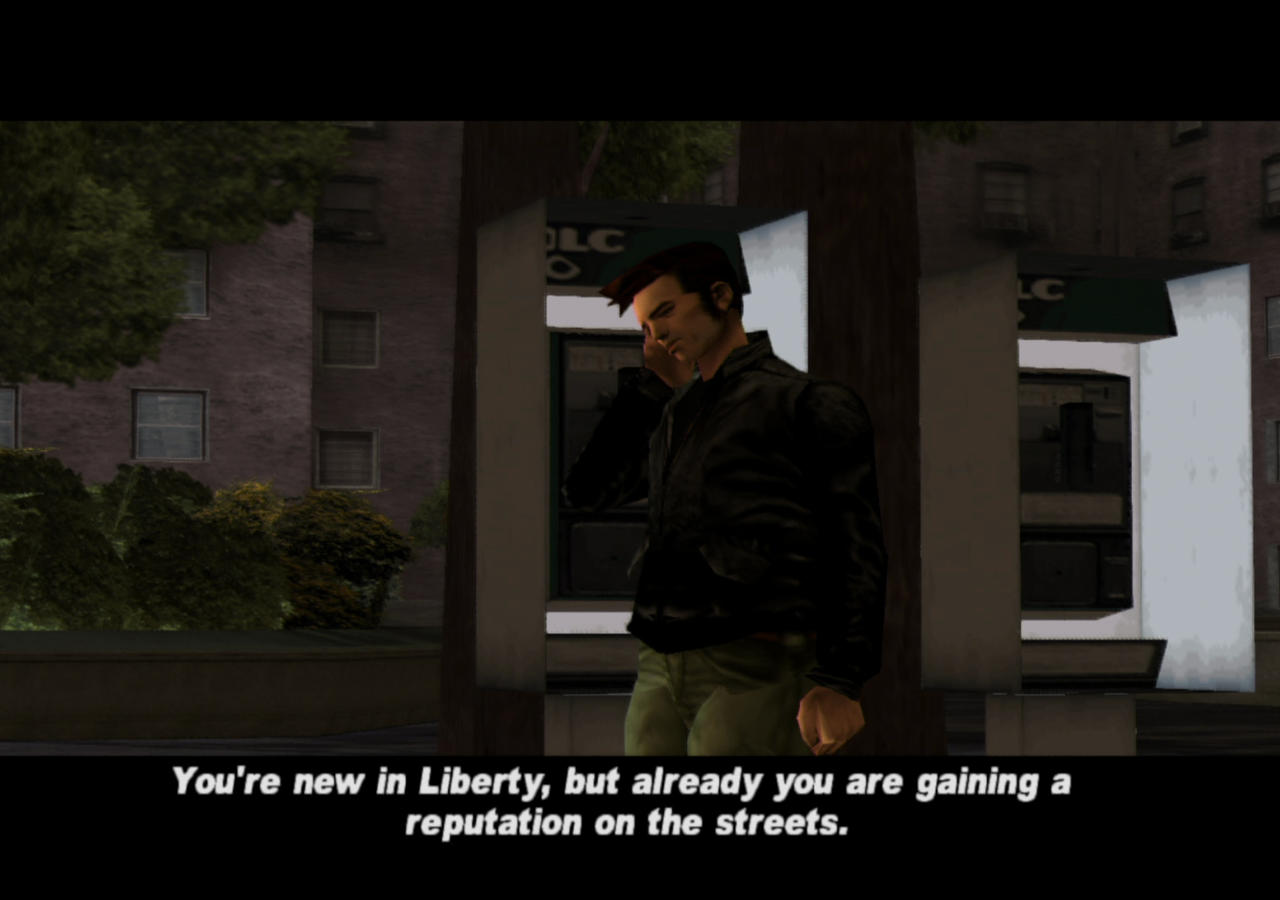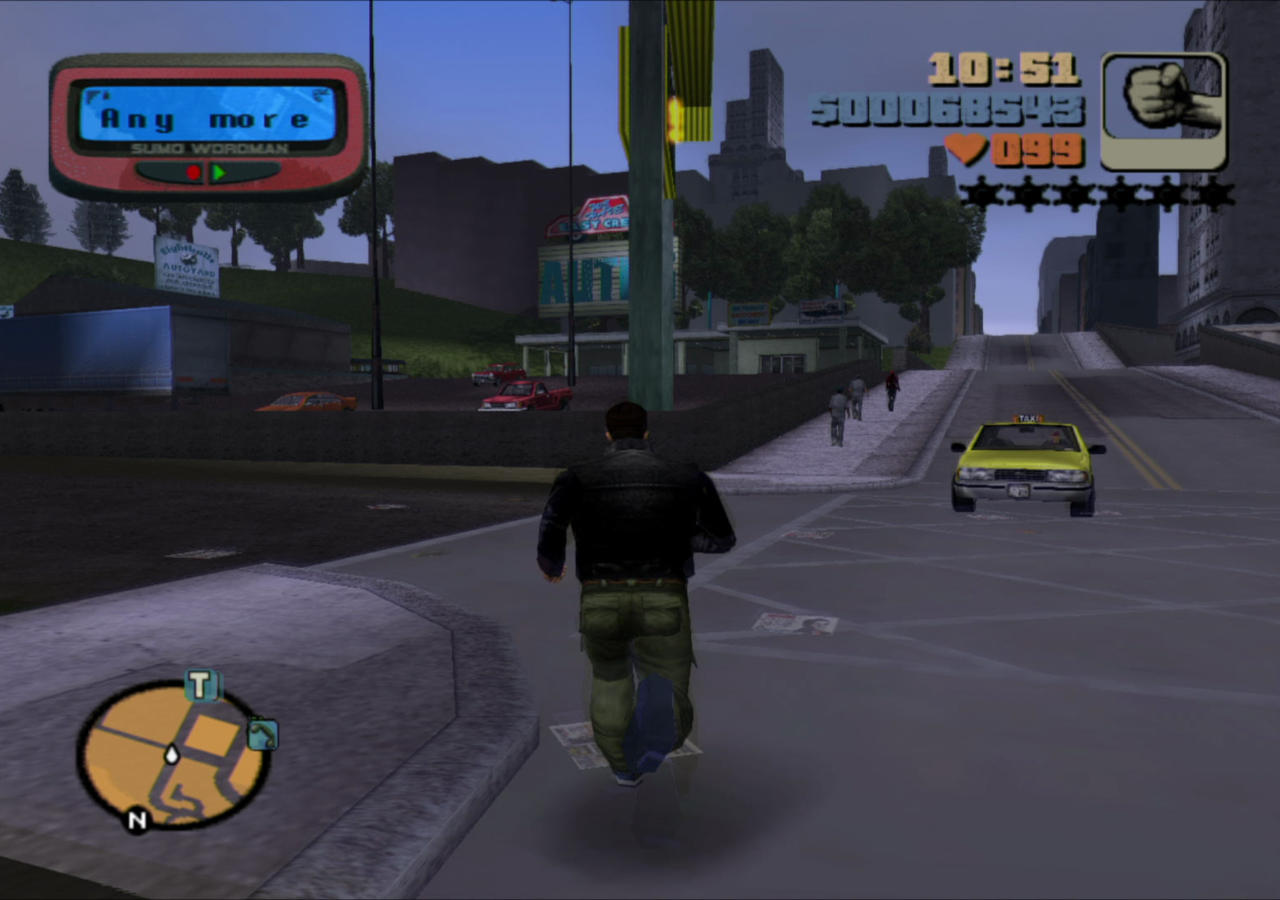Join GameSpot as we celebrate gaming history and give recognition to the most influential games of the 21st century. These aren't the best games, and they aren't necessarily games that you need to rush out and play today, but there's no question that they left an indelible impact on game developers, players, and in some cases, society at large.
Open-world games are not a modern phenomenon. Rudimentary though they appear in retrospect, there were numerous PC and console games released in the '80s and '90s that fit the description, offering an open structure and the freedom to explore at your will--and potentially at your peril. Still, the limits of game technology meant that these early examples, though enticing, were the exception rather than the rule. How the times have changed.
In 2019, it feels like an increasing percentage of AAA blockbusters are open-world behemoths, games so vast and chock-full of content that the sting of a $60 price tag is ever-so-slightly dulled. Some of these games benefit from having more for you to do, for having more enticing excuses to embody a powerful hero and extend your stay in their fascinating world. But there are other open-world games that are spread so thin that we're starting to see the folly of chasing content for content's sake. Modern open-world games can be both a gift and a blight, and we have Rockstar Games to thank for their prominence, all because of the revolutionary game, Grand Theft Auto III.
At the turn of the century, Rockstar was a recognizable if unremarkable label. The crime-sim GTA was there from the publisher's start, but in an era where 3D gaming was taking off, its modest top-down presentation did little to make it, nor the sequel that released two years later, stand out. With the release of GTA 3 in 2001, things took a dramatic turn for the series, for Rockstar, and for gaming at large.
GTA 3 was one big guilty pleasure wrapped up in a shiny next-gen bow. PlayStation 2 had been out for less than a year by the time GTA 3 released, and that timing meant it was in an excellent position to command the attention of an audience waiting for the next big thing. Critics immediately latched on. Jeff Gerstmann, former GameSpot reviewer and now Giant Bomb frontman, said, "Grand Theft Auto III is, quite simply, an incredible experience that shouldn't be missed by anyone mature enough to handle it." IGN's Doug Perry didn't mince words either. "The game is absolutely, insanely good," wrote Perry, "and is truly one of the best titles of the year, on PlayStation 2, or on any system."
As its name implies, GTA was always about being a criminal, but the distant camera and the score-based nature of the first two games abstracted the realities of your actions. GTA 3's in-your-face look at Liberty City elevated every act and heightened the thrill of every getaway. Enemies weren't small icons; they were people with discernable faces and lives, presumably, worth living. Sex, drugs, murder, mayhem--these aspects underpin GTA 3's identity, but none of that raw excitement would have come to the forefront in such a pronounced manner if not for the impressive tech driving the game's slice-of-life portrayal of a city in motion.

Liberty City wasn't just a large locale for a turn-of-the-century 3D game, it was also dense with little details between the lines that added up to the city's bigger cultural picture. It was a virtual, mini New York City; a vibrant caricature composed of lowbrow temptations, valuable secrets hidden in back alleys, and dashes of personality coming through the radio or from opinionated passersby. Though maybe not quite the "living, breathing world" that Leslie Benzies promised IGN back in 2001, Liberty City felt connected, and most importantly, kinetic.
Playing GTA 3 can be an infectious experience, especially when you embrace it as a sandbox for destruction. If you're ever in the need of a cathartic power trip, a set of cheat codes will give you control over your loadout, the weather, and even the behavior of NPCs. Unlock a Rocket Launcher, blow up every car in the vicinity, turn people against themselves, and why not, summon a tank out of thin air! Rockstar's reputation for delivering a compelling crime drama through great voice acting and animation was established in GTA 3, and it no doubt raised the bar for other developers working on cinematic stories. But in terms of unique influence, the secret sauce was the freedom to explore and your ability whip Liberty City into a frenzy that got under most players' skin.
GTA 3 arrived at the right moment, offered the right kind of technical and design innovation to captivate a massive audience, and ultimately set Rockstar on a path that would lead it to become one of the most powerful entities in the entire industry.
Unsurprisingly, mainstream media and lawmakers didn't care about the technical and artistic achievements that made Rockstar's interactive crime simulator possible--they only cared about the risque themes and hypothesizing how being immersed in them would influence impressionable youth. And really, it's not hard to understand why. The taboo topics in GTA 3 had long been "accepted" in other forms of media, but the interactive nature of games puts the responsibility of choice and consequence in your control, however virtual though the cause and effect may be. In GTA 3, you get to decide whether innocents live and die, and the worst that can happen as a result of running amok is that you get arrested by virtual officers before respawning back into the world with less cash in your pocket. You can even get around that meager penalty, if you wish, by reloading a save file, to even further silo away your responsibility.

GTA 3 did not, of course, transform a generation of players into hardened criminals. What it did, however, was permanently alter the gaming landscape. GTA 3's runaway success meant that publishers had a new market to chase, and the perfect excuse to tackle taboo themes. Some developers and publishers tried to copy GTA 3's success by sticking closely to the formula, but Rockstar remained the king of the open-world urban chaos--everyone else was just a runner up. That said, second place to GTA ain't that bad.
Saints Row is a series that thrived for years in GTA's wake, and with each new sequel, its developers veered progressively further into the absurd. It was successful enough, after four games in seven years, to make Wikipedia's list of best-selling video game franchises. Two other series on that list, Mafia and Watch Dogs, could also be attributed to the waves caused by GTA 3's ripple effect on the industry. You can also point to Lego City Undercover, Sleeping Dogs, The Simpsons: Hit and Run, Scarface: The World is Yours, The Godfather, and Crackdown as notable games that sprung from an industry desperate to bottle GTA's free-flowing, chaotic magic.
A new appreciation for virtual crime and violence aside, GTA 3's lasting legacy is having fueled our desire for open-world games in general. It was always inevitable that as technology progressed we would start to see bigger and more believable game worlds; GTA 3 simply hit fast-forward on the timeline. It's fair to bemoan the glut of open-world games that crop up from AAA studios today, especially when one seems open for no reason other than adding "value," but we are able to enjoy games like Metal Gear Solid V: The Phantom Pain and Horizon Zero Dawn because of years of accumulated knowledge that sprang from both early successes and failures alike.

The other side of GTA's success is Rockstar's success, and how much power it now wields over the entire industry. Case in point: Red Dead Redemption 2. Gaming's best-selling franchise, Call of Duty, traditionally gets a new entry in November every year. In 2018, with the impending release of RDR 2 (our 2018 Game of the Year), Activision moved its release date for Call of Duty: Black Ops 4 back to the start of October. There's no hard evidence that the unusual (for Call of Duty) release date was set because of RDR 2, but when multiple publishers started to shift or announce new release dates shortly after Rockstar put the date on the calendar, the correlation speaks pretty loudly.
These days, it's hard to imagine gaming without GTA being a part of the equation. GTA 3 arrived at the right moment, offered the right kind of technical and design innovation to captivate a massive audience, and ultimately set Rockstar on a path that would lead it to become one of the most powerful entities in the entire industry. GTA 3's influence is all around us, and even though it might take years for Rockstar to make a new GTA entry, it's worth remembering, while playing any open-world game, that its existence is owed in some small part to the craving for open worlds GTA 3 instilled in us all those years ago.

